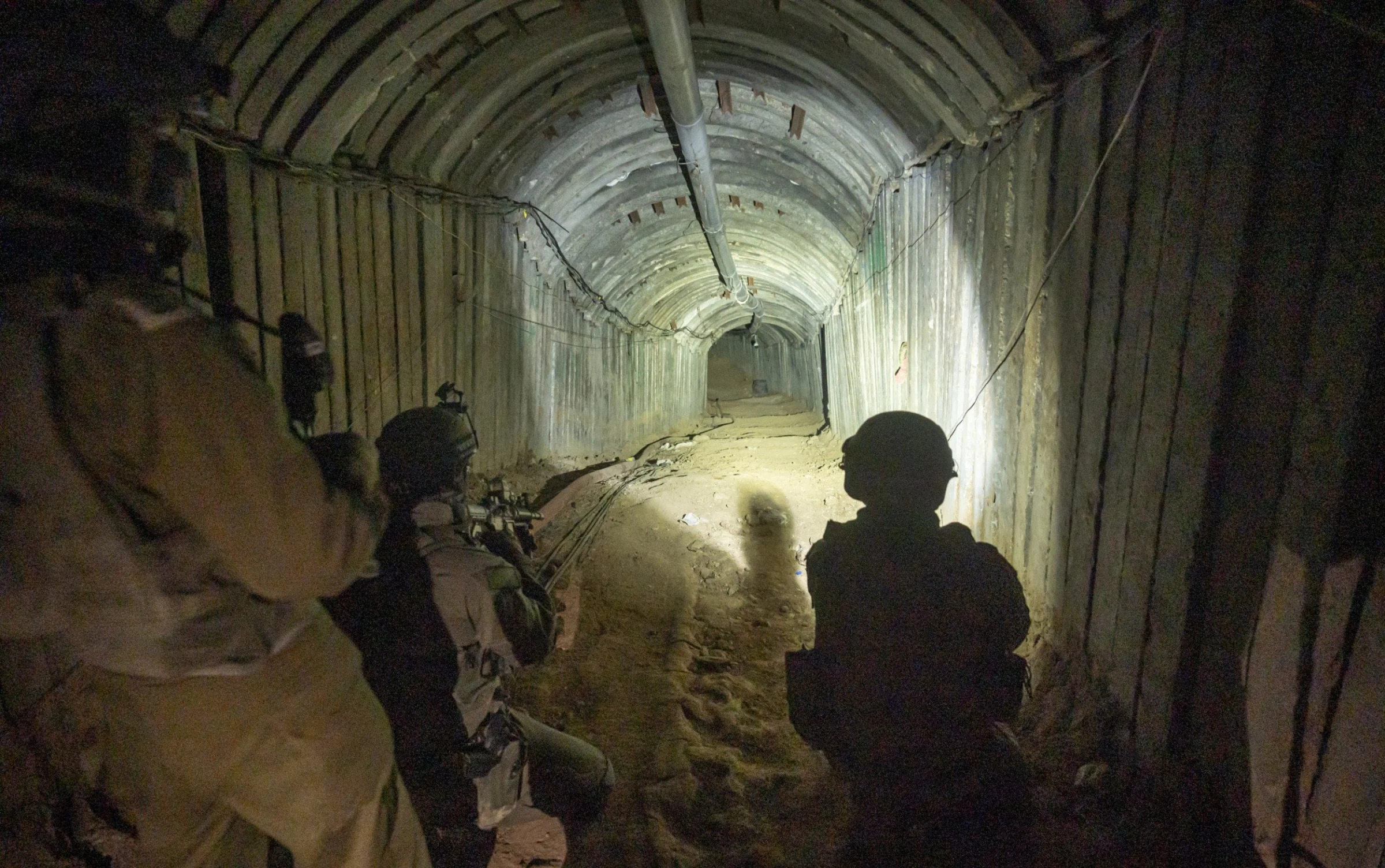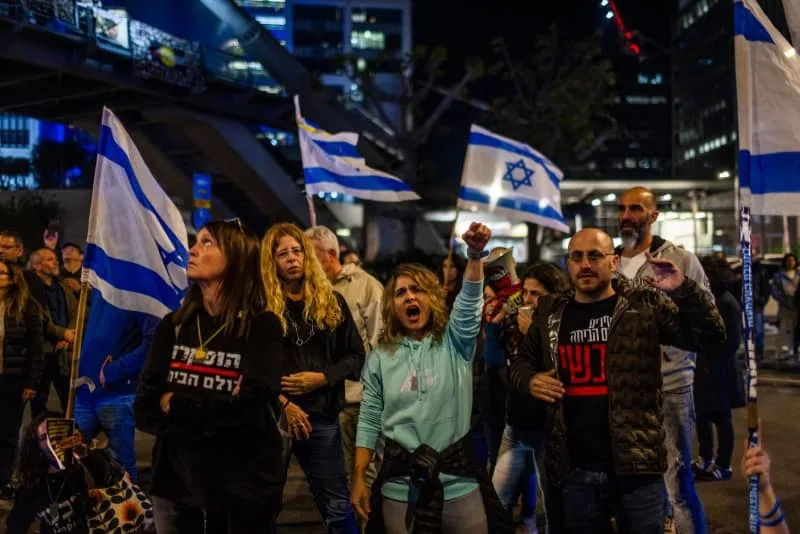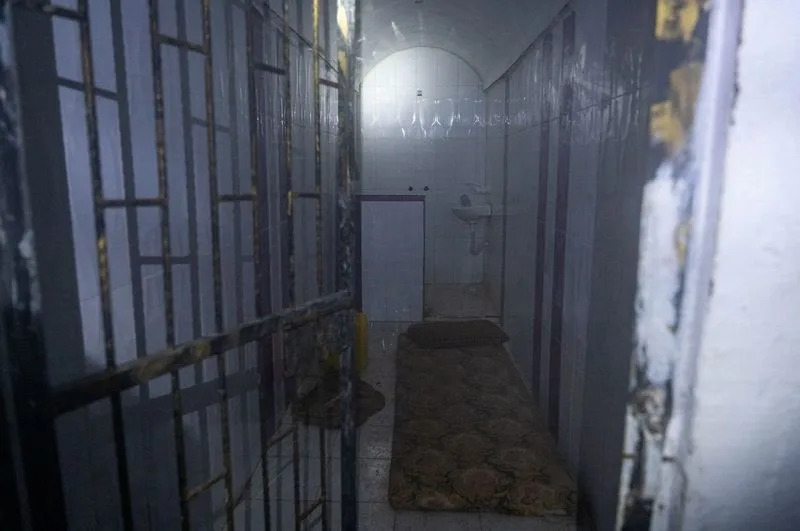A mysterious deadly fungus in the Hamas tunnel network poses a new threat to the 136 hostages being held in Gaza, Israeli officials have claimed.
A member of the hostage team said that there is a ‘high chance many of the hostages are sick’.
A member of the hostage team in Israel, speaking on condition of anonymity, said: “There is a deadly fungus in the tunnels with no treatment.”
“Hamas members there are now more immune to it but there is a high chance many of the hostages are sick and deteriorating due to this fungus,” the official said.
Dr Hagai Levine, head of the medical team for the hostage families forum, said testimonies of those released confirmed the fears of medical officials.
“We know several of the hostages were severely wounded on being taken hostage and we don’t know if they have been treated properly. Several of those coming back need long-term antibiotic treatment for infections which could even still be life threatening, worsened by the fungus in the tunnels,” he explained.
Fungus claimed life of Israeli soldier
It is believed that the fungus has already claimed the life of at least one Israeli soldier.
Last month, Ichilov Hospital confirmed that a soldier who was seriously injured while fighting in Gaza died of the fungal infection. The Israeli Defence Forces says it is investigating the matter.
So far, Israeli medical teams have been unable to treat the fungal infection nor identify what type of fungus is causing it.
The warning from Israel’s hostage team came as a report revealed that almost twice as many people are dying each year from fungal infections than previously thought.
A study published in the Lancet Infectious Diseases Journal, found that 3.75 million deaths can be traced back to fungal infections, accounting for around six per cent of all global deaths annually.
The revised global death toll is much higher than earlier calculations, which suggested fungal infections kill up to two million people each year.
Millions of different species of fungus exist across the planet, which humans regularly encounter in everyday life. The vast majority of people have immunity to these infections and do not develop disease.
But the poor condition that many of the hostages are believed to be in - many were seen being taken away by Hamas terrorists bearing serious, open wounds - as well as the conditions inside the poorly-ventilated tunnels, mean many may be at particular risk to fungal infection.
“When you have open wounds, you have a high risk of infections that could be life threatening,” said Dr Levine.
Hamas terrorists may have built resistance
Hamas terrorists, on the other hand, may have been able to build up resistance to infection by repeated exposure.
“Someone who is trained and used to these tunnels may be able to build an immunity,” he explained. “But it’s an environment that threatens the hostages’ lives.”
On top of the threat posed by fungal infection, a source inside the Israeli ministry of health warned that the hostages were also at increasing risk of execution.
While Hamas has claimed that several hostages have died as a result of Israeli air strikes on Gaza, “there are a few bodies of hostages brought home by Israel that were executed with multiple gunshots, like we saw on October 7 victims,” the source said.
“That’s not bombing - they are executing the hostages.”
The hostage team member said Israeli intelligence had also suggested that executions were becoming more frequent as Hamas loses control of more of Gaza.
“We don’t know numbers but we know that there are hostages being killed. For Hamas, they don’t care if they are dead or alive,” the source said.
34 hostages may have been executed
Israel now believes that as many as 34 of the hostages may have been summarily executed by their Hamas captors, a government source told the Telegraph.
On October 7, following the Hamas attacks, over 240 people, most of them civilians, were taken hostage.
The hostages, some of whom are elderly or children, remain key collateral for Hamas.
One Israeli intelligence source described the captives as “the iron dome for Hamas”, referring to the missile defence systems Israel has against aerial attacks.
Hamas’s leaders, the source said, “are surrounding themselves with the hostages as they know this makes the operation much more complex for Israel but at the same time, they need a ceasefire.”
Benjamin Netanyahu is coming under increasing pressure to secure the release of the remaining hostages.
The Israeli prime minister suffered an embarrassment this week when a member of his War Cabinet broke ranks and accused him of misleading Israelis by claiming “absolute victory” over Hamas was a realistic possibility.
Gadi Eisenkot, a former army chief whose son was killed in Gaza last month, also said the only way to bring the hostages home was through a cease-fire, refuting claims made by Mr Netanyahu and Defence Minister, Yoav Gallant, that only military pressure on Hamas will secure their freedom.
Pressure for a new round of truce talks has permeated Israeli society.
‘Feeling that we are stuck’
“There is a feeling that we are stuck and it’s the government’s responsibility to find the solution that will bring them back home,” said Dr Levine.
“The same government that was on duty when the hostages were abducted should not leave them wounded in Gaza. It must do whatever they can to release them.”
Thousands take to the streets again in Israel to protest Netanyahu
Protesters block road during a protest calling for immediate release of all the Israeli hostages in Gaza.
Thousands of people demonstrated in Israel on Saturday against the government of Prime Minister Benjamin Netanyahu.
Participants at a rally in Tel Aviv demanded an immediate end to the war in Gaza in order to free the more than 100 hostages still held by Hamas.
"Stop the fighting, pay the price!" Israeli media quoted one of the speakers, whose cousin is among the hostages, as saying.
Following an initial exchange of 105 hostages for 240 Palestinian prisoners at the end of November, Hamas has said it won't release the remaining hostages abducted from southern Israel on October 7 until Israel's military withdraws from the Gaza Strip.
Netanyahu and his fellow campaigners, however, say that Hamas needs to be defeated militarily to secure the release of the remaining hostages.
In the northern port city of Haifa, several hundred supporters of the left-wing Chadash party demanded the prime minister's resignation on Saturday. Several hundred people also took to the streets in Jerusalem against the Netanyahu government.
In front of Netanyahu's home in the coastal town of Caesarea, 50 kilometres north of Tel Aviv, relatives of the hostages and supporters had started a permanent protest on Friday evening.
"We expect serious people...to come out and give us real answers about how our loved ones are doing," the Haaretz newspaper quoted a hostage's relative as saying in its online edition.
Hamas and other extremist groups attacked southern Israel on October 7, killing 1,200 people and kidnapping around 240.
Israel responded to the worst massacre in its history with massive airstrikes and a ground offensive in the Gaza Strip. Currently, 136 hostages are still being held in the coastal area. Israel assumes that around 25 of them are no longer alive.
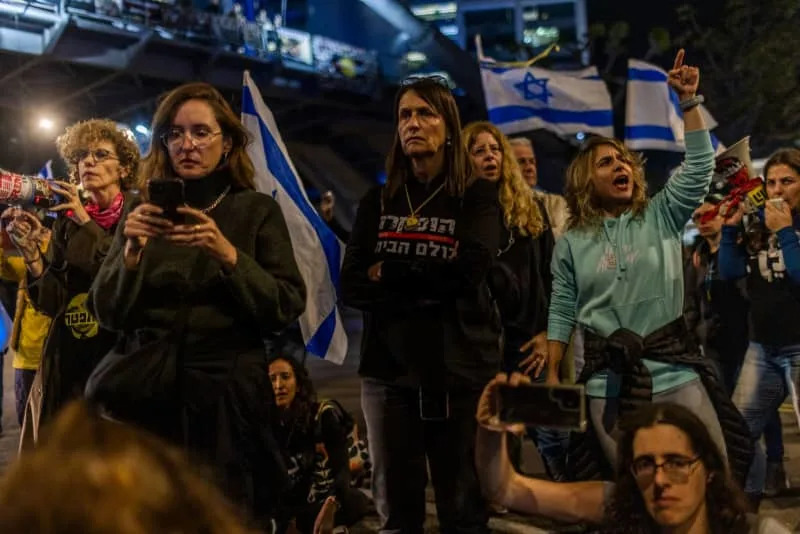
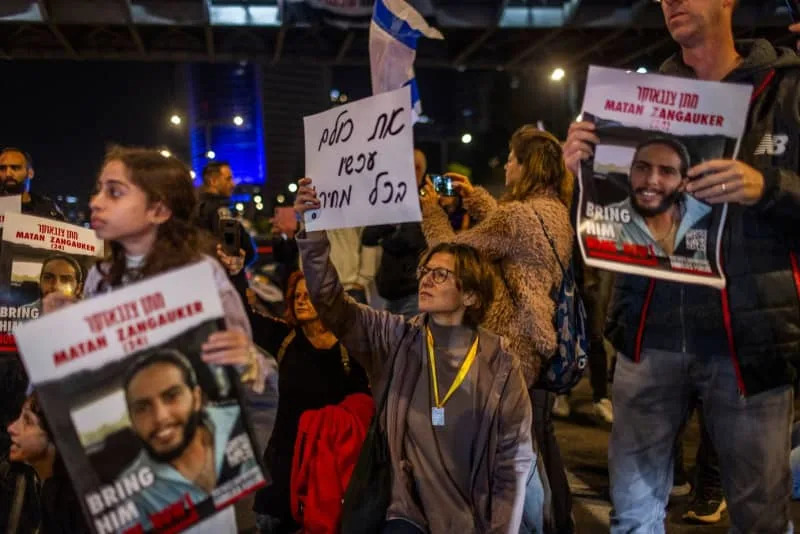
Israeli soldiers uncover Gaza tunnel that once held hostages -army
At the end of a kilometer-long, booby-trapped tunnel in the Gaza Strip, Israeli soldiers discovered cramped cells where the military said Hamas kept about 20 hostages.
They found a holding area, five narrow rooms behind metal bars, toilets, mattresses, and even drawings by a child hostage who was freed during a November truce, military spokesman Rear Admiral Daniel Hagari said.
No hostages were there when it was discovered.
The military released photos from the underground labyrinth and said it brought in journalists to document the tunnel before it was destroyed.
The tunnel entrance, Hagari said, was in the house of a Hamas member in the southern Gaza city of Khan Younis, where Israel has been focusing its fight in recent weeks against the Palestinian Islamist group.
"The soldiers entered the tunnel where they encountered terrorists, engaging in a battle that ended with the elimination of the terrorists," Hagari said.
The tunnel was rigged with blast doors and explosives, he said.
"According to the testimonies we have, about 20 hostages were held in this tunnel at different times under harsh conditions without daylight, in dense air with little oxygen, and terrible humidity that makes breathing difficult," he said.
Some of the hostages kept there were freed during the week-long Qatari-mediated truce. Others are among the more than 130 captured during Hamas' Oct. 7 rampage through southern Israel that are still in Gaza.



